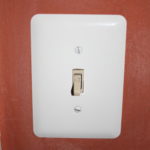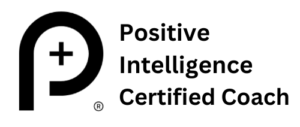 “If you’re able to use your mind instead of being used by your mind, that’s a beautiful thing. To use your mind constructively.” — Eckhart Tolle
“If you’re able to use your mind instead of being used by your mind, that’s a beautiful thing. To use your mind constructively.” — Eckhart Tolle
My 16-year-old son asked me once, “Why don’t you have any dumb friends?” It was after a dinner party with my tight-knit group of graduate school girlfriends. I took it as a slightly twisted, totally teenage type of compliment.
It’s true. I tend to gravitate toward smart people. It’s not intentional, it just happens. Even though I left my career as an international economist, my circle of friends hasn’t changed. It’s not surprising, though, that a few of them were a little perplexed at my stepping away from the world of income, accolades, and intellectualism, first to be with my kids, and more recently (and more oddly) to explore New Age spiritual ideas.
A couple of comments on a recent post reflect what I love most about my inner circle of smart, successful, fascinating girlfriends. They can think analytically. They won’t be spoon-fed. They will question. And they’re not afraid to tell you so. It’s why I always want them on my team.
My suggestion in the post to question the validity of the stream of thoughts running through our heads, to really observe the patterns from a deeper place, may have sounded like I was saying that thought is bad. What I was trying to say was that crazy-making, ego-driven thoughts crowd out the deeper, purposeful intelligence that lies below.
I will admit that when I first read Eckhart Tolle’s A New Earth, I went a little overboard in my mind-clearing efforts. I was bumping into walls for a few weeks, so completely immersed in “The Now” that I couldn’t even plan what to have for dinner. Two years have passed, and I’ve got my sea legs again.
The trick has been to find a few moments of stillness each day (easier now that the Olympics are over and the TV isn’t on 24/7 in my athlete-dominated home). Taking two or three conscious breaths from time to time clears out the not-to-be-trusted thoughts.
And when I feel the sensation of tension or anxiousness arise, I go inward to look for the source of where it’s coming from. Almost always it’s because of something that happened in the past that I can’t do anything about or something I anticipate might happen in the future. If I can take action to address a situation, I do it. If I can’t, I recognize it for what it is, put it in the category of “Everything happens for a reason,” and let go of it. That’s my basic formula. I’m rarely 100% successful (especially when I’m parenting), but I keep trying. It’s made life better.
For those of you who find the prospect of reading Tolle’s work a bit too daunting, an interview he gave to ABC World News in 2009 provides a pretty good summary. His explanation of what he means by “ego” is especially helpful. (Though I knew that Oprah was a huge supporter of Tolle’s work, I cringed a little to learn that Paris Hilton is also a fan, but there’s that ego of mine…) Click here to read it.
Thanks for the comments — keep ’em coming!


